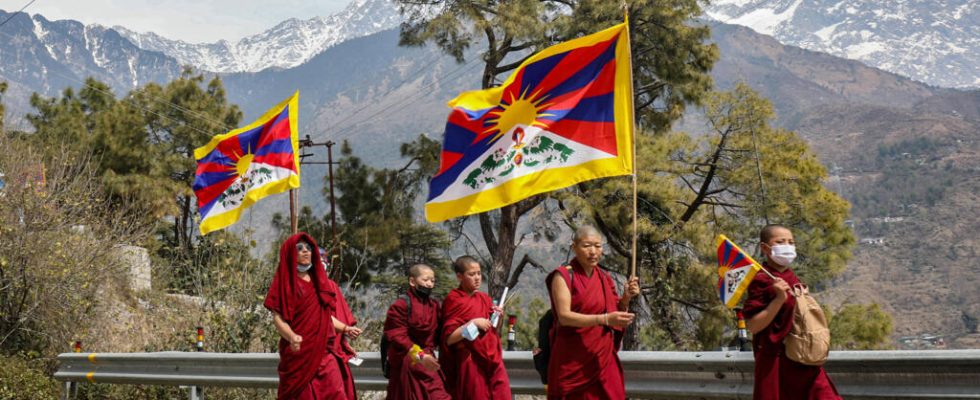This Sunday, March 10, Tibetans commemorate the 65th anniversary of the exile of the Dalai Lama, following a failed uprising against Chinese communist power. A date that Tibetans in exile commemorate from India, with fears that Beijing will strengthen its control over the territory.
2 mins
This Sunday, March 10, in India, the Tibetans raised the flag of their homeland. It was during protests marking the 65th anniversary of China’s crushing of their people’s uprising, which led to exile on Dalai Lama and thousands of fellow Tibetans. Several hundred gathered in the northern Indian city of Dharamsala, where the Dalai Lama has called home since fleeing Tibet days after the March 10, 1959, uprising.
“ Today’s commemoration is not only a way to make the voice of Tibetans resonate with the international community, but a moment of reflection for all Tibetans said Lhagyari Namgyal Dolkar, 37, a member of Parliament for the Tibetan government in exile, based in India. The Dalai Lama was just 23 when he fled the Tibetan capital Lhasa, fearing for his life after soldiers Chinese put down the uprising, then crossing the snow-covered Himalayas to reach India. The Buddhist spiritual leader never returned to Tibet.
Read alsoIn Tibet, “restrictions are more and more numerous and in all areas”
A resolution by the “ dialogue »
The Dalai Lama, now 88, stepped down as political leader of his people in 2011, passing secular power to a government democratically chosen by some 130,000 Tibetans around the world. Penpa Tsering, the head of this government, declared on Sunday that he was not seeking total independence for Tibet, but that he was aiming for greater autonomy and ” a resolution of the Sino-Tibetan conflict through dialogue “.
Many Tibetans in exile fear that Beijing will appoint a rival successor to the Dalai Lama, thereby strengthening its control over Tibet. Over the centuries, Tibet has alternated between independence and control by Chinawho claims to have “ peacefully released » this rugged territory and having brought infrastructure and education there. China assures that Tibet is an integral part of the country.
Read alsoTibet and Xinjiang, same abuses?
